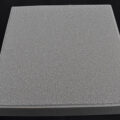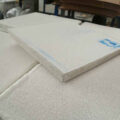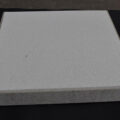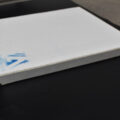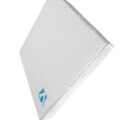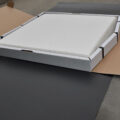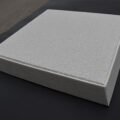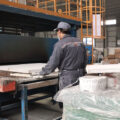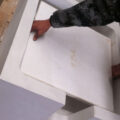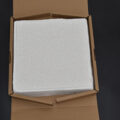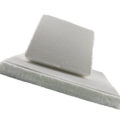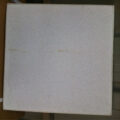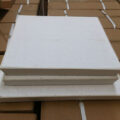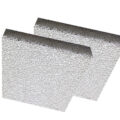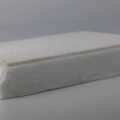Alumina Ceramic Foam Filter For Foundries has a large flow capacity and is suitable for filtration and purification in continuous casting and rolling production.
The metal filters and fiber cloth filters used by low-end customers can only remove large inclusions in the aluminum alloy melt, but cannot remove the inclusions below micrometers. The metal filter will contaminate the aluminum alloy. Ceramic Filter For Foundry can filter out fine inclusions and significantly improve the mechanical properties and appearance quality of the product.
When using Alumina Ceramic Foam Filter For Foundries, if the melt is very dirty, the filter will quickly become clogged. Using two filters can extend the life of the filter. In terms of filtration efficiency, it is far more effective to increase the collection efficiency by increasing the filtration area than adding a coarse filter to it.
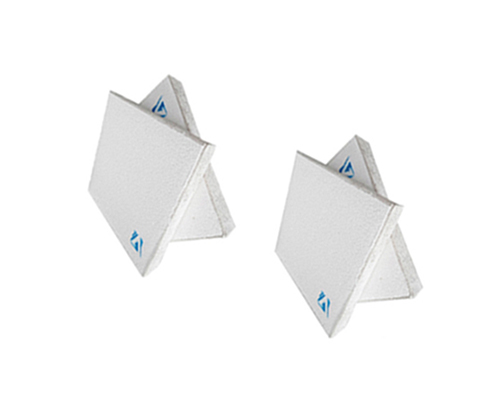
A more effective arrangement is to place two large-area fine filters in parallel at the outlet of the launder, instead of using one thick and one thin in series. Choose ceramic foam filter materials of different thicknesses to change their ability to capture inclusions. Use filter materials of different pore sizes to make a reasonable combination from large pores to small pores, that is, at the same time change the filtration parameters, increase the filtration thickness and the number of filtration stages to enhance the ability to capture inclusions.
Alumina Ceramic Foam Filter can increase the flow cross-sectional area, reduce the flow rate of the melt, increase the probability of capturing inclusions, etc., so as to improve the filtering effect to achieve the desired purpose.
Filter efficiency is related to filter cell size. By carefully controlling cell size within the filter, a more consistent filtration performance can be achieved. Typically, removal efficiency increases as filter cell size and the metal velocity in the filter decrease.
Ceramic foam filters are basically divided into 6 pore sizes: 10PPI, 15PPI, 20PPI, 25PPI, 30PPI, and 40PPI. The larger the number, the smaller the aperture. But in actual practice, the four types of 10PPI 20PPI 30PP 40PPI can meet the needs of customers.
1. The casting: 10~25ppi
2. Semi-continuous casting: 30~60ppi
3. High-quality aluminum or sheet: 50~60ppi
4. Continuous casting and rolling: 50~60ppi

